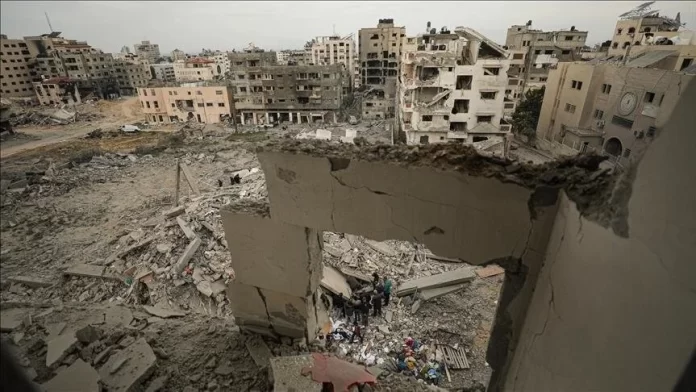– Adv. Shahid Usman Makandar
As the world witnesses yet another day of genocide, every individual of conscience must speak out against the ongoing genocide perpetrated by Israel in Gaza.
The events unfolding in Gaza after October 7 represent a continuation of a long history of oppression and violence against the Palestinian people. For decades, they have endured occupation, displacement, and systematic discrimination at the hands of the Israeli government.
The recent escalation of violence, characterized by airstrikes, bombings, and the targeting of civilian infrastructure, amounts to nothing short of genocide. Innocent men, women, and children are being killed indiscriminately, their homes reduced to rubble, and their futures shattered. Now in the month of Ramadhan, we are busy preparing menus for breaking the fast; on the other hand, the children in Gaza are being deprived of even one meal per week, and the events unfolding in Gaza are being watched over by billions but the practice of turning a blind eye towards oppression is so much embodied on us, that even a killing spree, a genocide, has been normalized to our hearts.
In the face of such atrocities and narratives, it is natural to feel fear and apprehension about speaking out in our current society. The fear of being labeled as divisive, radical Muslims, fanatics or even facing repercussions from those in positions of power can be challenging. However, we must remember that our silence only serves to embolden the oppressors and prolong the suffering of the oppressed. Our voices have the power to challenge narratives, mobilize support, and ultimately bring about change.
It is crucial to recognize that speaking out in support of Palestine is not a matter of religion or politics; it is a matter of basic human rights and dignity. Moreover, our silence is a betrayal of our values and principles. As Muslims, we are taught to stand up against injustice, to speak truth to power, and to advocate for the oppressed.
The Prophet Muhammad ﷺ himself exemplified these values through his actions, standing up for the marginalized and oppressed in society. In following his example, we must not shy away from our responsibility to speak out against injustice, even if it means facing resistance or backlash. We cannot claim to stand for justice and humanity while remaining silent in the face of such blatant violations of human rights.
Understandably, speaking out may come with risks and challenges, but we must remember that the struggle for justice has never been easy. History has shown us that meaningful change often requires courage, sacrifice, and perseverance. We must draw inspiration from those who have come before us, who have stood up against oppression and tyranny in the face of immense adversity.
In conclusion, the ongoing genocide in Gaza demands our urgent attention and action. As Muslims, we have a moral and religious obligation to raise our voices in solidarity with the Palestinian people. We must not allow fear or rejection to silence us. Let us stand together, united in our commitment to justice, and roar in an echo: “WE SHALL NOT STOP TALKING ABOUT PALESTINE”.




